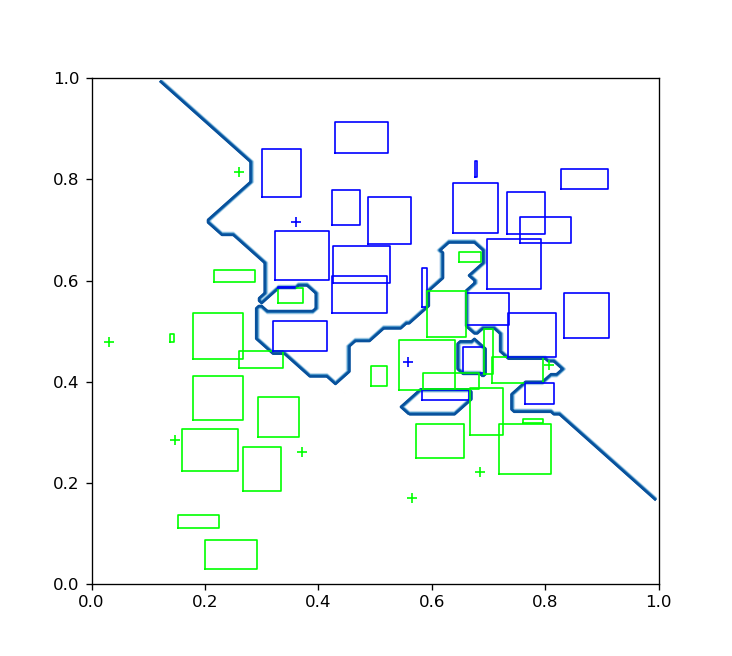OpenAI Python Library
The OpenAI Python library provides convenient access to the OpenAI API from applications written in the Python language. It includes a pre-defined set of classes for API resources that initialize themselves dynamically from API responses which makes it compatible with a wide range of versions of the OpenAI API.
Documentation
See the OpenAI API docs.
Installation
You don't need this source code unless you want to modify the package. If you just want to use the package, just run:
pip install --upgrade openai
Install from source with:
python setup.py install
Usage
The library needs to be configured with your account's secret key which is available on the website. Either set it as the OPENAI_API_KEY environment variable before using the library:
export OPENAI_API_KEY='sk-...'
Or set openai.api_key to its value:
import openai
openai.api_key = "sk-..."
# list engines
engines = openai.Engine.list()
# print the first engine's id
print(engines.data[0].id)
# create a completion
completion = openai.Completion.create(engine="ada", prompt="Hello world")
# print the completion
print(completion.choices[0].text)
Microsoft Azure Endpoints
In order to use the library with Microsoft Azure endpoints, you need to set the api_type, api_base and api_version in addition to the api_key. The api_type must be set to 'azure' and the others correspond to the properites of your endpoint. In addition, the deployment name must be passed as the engine parameter.
import openai
openai.api_type = "azure"
openai.api_key = "..."
openai.api_base = "https://example-endpoint.openai.azure.com"
openai.api_version = "2021-11-01-preview"
# create a completion
completion = openai.Completion.create(engine="deployment-namme", prompt="Hello world")
# print the completion
print(completion.choices[0].text)
# create a search and pass the deployment-name as the engine Id.
search = openai.Engine(id="deployment-namme").search(documents=["White House", "hospital", "school"], query ="the president")
# print the search
print(search)
Please note that for the moment, the Microsoft Azure endpoints can only be used for completion and search operations.
Command-line interface
This library additionally provides an openai command-line utility which makes it easy to interact with the API from your terminal. Run openai api -h for usage.
# list engines
openai api engines.list
# create a completion
openai api completions.create -e ada -p "Hello world"
Example code
Examples of how to use embeddings, fine tuning, semantic search, and codex can be found in the examples folder.
Embeddings
In the OpenAI Python library, an embedding represents a text string as a fixed-length vector of floating point numbers. Embeddings are designed to measure the similarity or relevance between text strings.
To get an embedding for a text string, you can use the embeddings method as follows in Python:
import openai
openai.api_key = "sk-..." # supply your API key however you choose
# choose text to embed
text_string = "sample text"
# choose an embedding
model_id = "text-similarity-davinci-001"
# compute the embedding of the text
embedding = openai.Embedding.create(input=text_string, engine=model_id)['data'][0]['embedding']
An example of how to call the embeddings method is shown in the get embeddings notebook.
Examples of how to use embeddings are shared in the following Jupyter notebooks:
- Classification using embeddings
- Clustering using embeddings
- Code search using embeddings
- Semantic text search using embeddings
- User and product embeddings
- Zero-shot classification using embeddings
- Recommendation using embeddings
For more information on embeddings and the types of embeddings OpenAI offers, read the embeddings guide in the OpenAI documentation.
Fine tuning
Fine tuning a model on training data can both improve the results (by giving the model more examples to learn from) and reduce the cost & latency of API calls (by reducing the need to include training examples in prompts).
Examples of fine tuning are shared in the following Jupyter notebooks:
- Classification with fine tuning (a simple notebook that shows the steps required for fine tuning)
- Fine tuning a model that answers questions about the 2020 Olympics
For more information on fine tuning, read the fine-tuning guide in the OpenAI documentation.
Requirements
- Python 3.7.1+
In general we want to support the versions of Python that our customers are using, so if you run into issues with any version issues, please let us know at [email protected].
Credit
This library is inspired from the Stripe Python Library.


